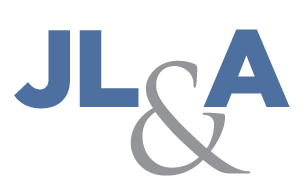Planning • IMPLEMENTATION • IMPROVEMENT • EVALUATION
Evaluation
We support our clients in answering the questions their audiences care about most, so they can shape their evaluation to advance learning and promote lasting change.
National Association of County and City Health Officials
JLA is providing evaluation technical assistance for grantees participating in two of the National Association of County and City Health Officials (NACCHO)’s CDC-funded initiatives - the Comprehensive Community Approaches to Prevent Substance Misuse (CCAPS) demonstration project and the Implementing Overdose Prevention Strategies at the Local Level demonstration project (IOPSLL).
JLA is advising logic model design and working with grantees to develop and/or refine their evaluation questions and measurement plans for the 34 grantees across the two programs, comprised of local health departments and social service organizations. JLA is also working with NACCHO and their other expert consultant team to design and implement an evaluation of two pilot academic detailing programs focused on addressing adverse childhood experiences for Adult Primary Card Clinicians and Pediatric Care Clinicians across the CCAPS demonstration sites.
The Center for Healthcare Strategies
JLA served as the evaluation technical assistance provider for CHCS’s national Robert Wood Johnson Foundation funded Advancing Integrated Models initiative to pilot new models of integrated care for individuals with complex health and social needs.
JLA advised participating pilot sites on the design and implementation of their evaluation plans and facilitated a consensus-building modified Delphi process to curate a set of patient- and staff-reported measures for inclusion in pilot site evaluation plans. JLA also developed a series of briefs about the measures development process.
Bureau of Alcohol and Drug Use Prevention, Care and Treatment (BADUPCT), New York City Department of Health and Mental Hygiene
JLA was engaged to evaluate stakeholder experience with the technical assistance (TA) provided by BADUPCT to support local health departments across the country under a CDC-funded Prevention Opioid Crisis Response Grant, managed by the National Association of County and City Health Officials (NACCHO).
JLA examined local health department county contexts and opioid response strategies and conducted key informant interviews with local health department representatives, TA providers, and NACCHO representatives. Data were used to assess TA delivery effectiveness and identify facilitators and barriers to TA uptake. JLA findings are reflected in a “TA best practice guide” developed by the BADUPCT.
Bureau of Maternal, Infant, and Reproductive Health (BMIRH), New York City Department of Health and Mental Hygiene/ Public Health Solutions
JLA conducted an evaluation of a 4-year, BMIRH sponsored, multi-site learning collaborative with 12 hospitals serving low-income populations to measure the implementation of clinical best practices and impact on project goals.
Evaluation methods included hospital staff surveys, monthly patient audits/interviews, qualitative focus groups and user experience surveys. JLA analyzed monthly hospital data collected via patient interview, including data disaggregated by race and ethnicity to examine and address inequities; and compared hospitals across “readiness factors,” assessing the impact of team engagement and team composition on practice improvements.
To support hospital improvement teams in data collection and interpretation, JLA provided training and intensive technical support including easy-to-use data collection instruments and analytic tools that hospitals could use beyond the life of the collaborative. JLA partnered with quality improvement team members to pilot and refine evaluation instruments and methods to ensure that they address the real-world conditions and produce reliable data.
New York State Health Foundation
The NYS Health Foundation commissioned JLA to examine early experience in NYS Health Home Program.
We conducted interviews with experts in the field, health home leaders, and care management partners to elicit perspectives on the factors impacting the design and delivery of care management in Health Homes, common implementation challenges, promising practices, and issues warranting more in-depth exploration to inform the field. Findings were released in a NYS Health Foundation report, Care Management in New York State Health Homes to inform practitioners and policymakers statewide about progress toward the Health Home vision of comprehensive care management.





